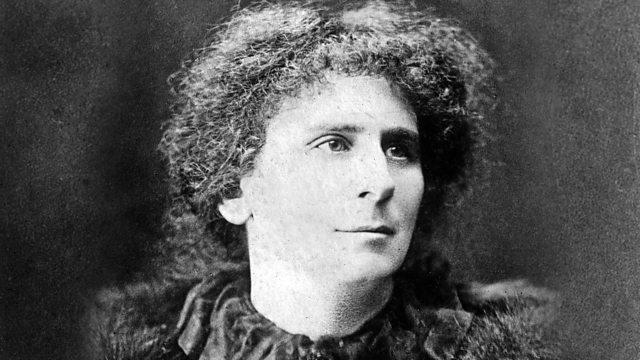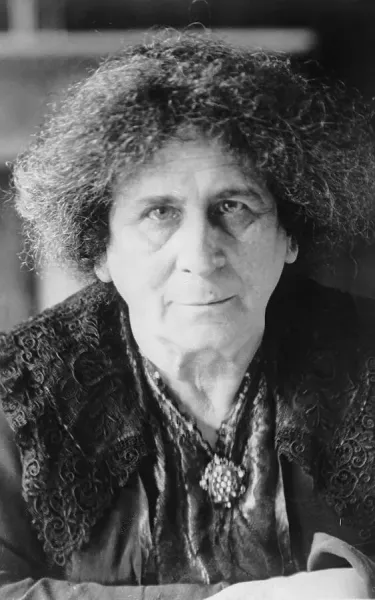In the late 19th and early 20th centuries, science was not known for welcoming women. It was a male-dominated world, filled with dismissals, gatekeeping, and a widespread belief that women simply didn’t belong in the lab. But Hertha Ayrton wasn’t deterred. She was determined not just to participate but to lead.
From revolutionizing how cities were lit to developing life-saving technology for soldiers in World War I, Hertha Ayrton left a mark on the world that cannot be ignored. She wasn’t just a pioneer for women in science she was a pioneer in science, period.

Breaking Through the Smoke: Ayrton and the Electric Arc Lamp
At the heart of Ayrton’s early fame was her work on electric arc lamps one of the earliest forms of street lighting. These lamps had a major problem: they flickered, hissed, and smoked unpredictably. Engineers at the time attributed the issues to “mysterious forces” they couldn’t quite explain.
But Ayrton had a different idea.

Through methodical experimentation and deep mathematical analysis, she identified the real culprit: oxygen. She discovered that it was oxygen in the air disrupting the electric arc, causing instability and inefficiency in the light.
Her research was detailed and undeniable. In 1899, she became the first woman to present a paper before the Institution of Electrical Engineers (IEE), titled The Hissing of the Electric Arc. It was a groundbreaking moment not only for science but for women in the field. Her work led directly to improved arc lamp designs, which in turn transformed city lighting across Europe and beyond.
Video:
The woman who tamed lightning | Hertha Marks Ayrton | BBC Ideas
Recognition Against the Odds
Despite her brilliance, Ayrton faced intense resistance from institutions that weren’t ready to acknowledge female scientists. In 1902, she was nominated for a Fellowship of the Royal Society, Britain’s top scientific institution. But she was rejected not for lack of merit, but because she was a woman.
Still, she pressed on. Ayrton became the first woman awarded the Hughes Medal from the Royal Society in 1906 for her work in electricity a recognition that placed her among the era’s most accomplished scientists.

From Electricity to the Battlefield
When World War I broke out, Ayrton didn’t retreat into theory she turned her mind toward saving lives. One of the major threats on the front lines was poison gas. Soldiers needed a way to clear trenches quickly after gas attacks.
Hertha invented what became known as the Ayrton fan, a hand-operated device that created airflow to dispel the deadly gas from trenches. Lightweight, portable, and effective, these fans were distributed in large numbers to British troops.
While simple in appearance, the Ayrton fan represented a crucial innovation one that likely saved thousands of lives. Her invention showed that science, in the hands of a determined mind, could be a weapon against war itself.

A Legacy Beyond Gender
Hertha Ayrton’s story is one of perseverance, intellect, and impact. She challenged not only scientific assumptions but also social ones. In doing so, she left a legacy that continues to inspire women and men alike.
Video:
Hertha Marks Ayrton & The Fight for Fellowship (feat. Helen Arney) – Objectivity 56
She was more than a woman in science she was a scientist who transformed the way we light our streets, and who gave soldiers a fighting chance against chemical warfare. She proved that rigorous thinking and fearless experimentation could change the world, even when the world wasn’t ready to listen.
Remembering Hertha Today
Despite her achievements, Ayrton’s name is not as widely recognized as it should be. But slowly, that’s changing. Her contributions are being re-evaluated, her name appearing in more classrooms and historical accounts. More importantly, she stands as a symbol of what happens when talent meets determination no matter the odds.

Whether you walk through a well-lit street at night or read about innovations in wartime technology, there’s a good chance Hertha Ayrton’s influence is not far behind.
Conclusion
Hertha Ayrton dared to challenge the status quo both scientifically and socially. At a time when women were expected to remain silent, she demanded to be heard. And when she spoke, she lit up the world literally.
Her story is not just about science or gender. It’s about the enduring power of curiosity, courage, and the will to make the world better with every invention.


